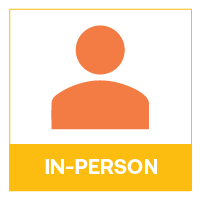Back
On-demand recording will be available 24hrs after the presentation.
Automation Technologies
Novel Automation Solutions: Products, devices and software used to support experimental and data workflows
DashChem - Smart Laboratory Dashboard
Wednesday, February 9, 2022
10:00 AM – 10:30 AM
Location: 210B
- VG
Vishakha Goyal, M.Eng. Robotics
Automation Engineer
NCATS, NIH/Axle Informatics, Maryland, United States
There has been little advancement in the field of chemistry automation over the past few decades. Therefore, the way chemistry is being performed on the benchtop has not changed significantly over the years. The manual work involved in laboratories to run even simple pipetting tasks poses an added burden to the chemists, since it takes away from crucial research time. In order to tackle these challenges and more, A Specialized Platform for Innovative Research Exploration (ASPIRE) initiative was launched by NCATS. One of the main objectives of ASPIRE is to enable standardization and reproducible chemistry through automation, which is an essential part of realizing this goal. The core idea is to create state of the art laboratories and retrofit existing ones with automated solutions. A significant part of this initiative is the NCATS DashChem, an Internet of Things (IoT) based dashboard centered around inductive laboratory automation. This dashboard integrates automation, chemistry, and informatics and brings together data from different instrumentation platforms, enabling the scientists to run seamless chemistry workflows. We are creating an ecosystem of old and new laboratory equipment such that a user can interact with it through a universal dashboard application, in person or virtually. The uniqueness of this dashboard comes from its ability to handle a multitude of tasks including, but not limited to, controlling laboratory devices, executing chemistry reaction flows, and providing user access to reaction data tracking. The array of devices used in our laboratories are from a variety of independent vendors, some of which are supported purely in-house, and have their own user interface, making it more difficult to track data for an entire experiment involving multiple instruments. It also makes the data tracking process dependent upon a human being in the loop, which can potentially increase chances of error. We will demonstrate how our dashboard solves these problems of data tracking, performing standardized and reproducible chemistry as well as allowing chemists to run reactions from a single dashboard remotely or at the bench.


